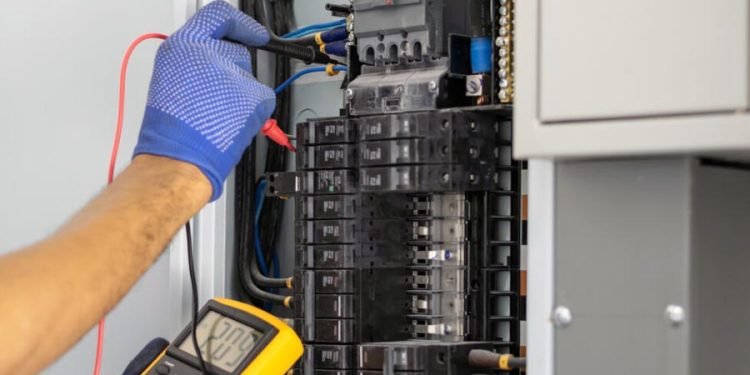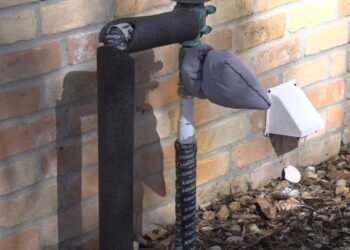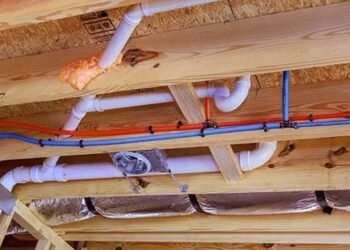Are you in the market for a new home? Have you been scouting neighborhoods, comparing features, and weighing potential purchase options? Great. But before closing the deal on your dream house, it’s important to ensure all its electrical systems are safe and working properly. Homebuyers should never overlook this important step. Hiring an experienced Electric Company Winchester VA, to complete an electrical inspection can provide essential peace of mind while protecting your family from costly issues. Get the inside scoop on why a thorough electrical inspection is one of the most crucial steps when buying a house.
Before discussing the many benefits of an electrical inspection, it’s important to understand what it is.
What is an electrical Inspection?
Most people are familiar with a building inspection that covers a home’s structural integrity, plumbing, and heating systems. However, Ridgewood Management Company warns it doesn’t cover the electrical components. That’s where an electrical inspection comes in.
An electrical inspection is a detailed assessment of a home’s electrical system. The inspection will evaluate the safety and function of the electrical system, as well as detect potential issues that could be costly to repair. Once a certified inspector completes the inspection, you’ll receive a detailed report outlining recommended repairs.
Here are some of the issues an inspector will consider:
Electrical Wiring
An electrical wiring’s age and condition will influence its suitability. An inspector will review the wiring and ensure it is not nearing the end of its lifespan. Furthermore, the inspector will look for signs of damage and check if it meets all code requirements.
Examine The Service Panel
A service panel is the brain of a home’s electrical system. It contains circuit breakers and fuses, which control electricity to all parts of the house. An inspector will ensure that it’s up to date and can accommodate any additional electrical needs. If you want to choose where to buy the replacement parts you would need to update your house’s electrical systems, you should make sure that you get it from a reliable electrical supply.
An Old House For Sale
Are you buying an old house? Then having an electrical inspection becomes even more important. Older homes may have outdated wiring that don’t meet modern safety requirements, as well as outdated service panels. Therefore it’s critical to get an inspector to assess the condition and safety of the electrical systems.
Benefits of Electrical Inspection
Now that you understand what an electrical inspection includes, let’s look at the benefits of having one done.
Safety – A defective electrical system can create safety challenges. From electrocutions and shorted-out appliances to potentially deadly fire hazards. So, investing in a professional electrical inspection will identify safety issues such as wrong components, wrong installation methods and overloading circuits.
Prevention – Regardless of your system’s current condition, an electrical inspection can detect potential problems before they start. This will save you money in the long run by preventing costly repairs or replacements.
Insurance Purposes – When filing an insurance claim after purchasing a home, having an electrical inspection covers you if anything goes wrong. It also helps to verify that your system is safe and compliant with your insurer’s requirements.
Price negotiation – An electrical inspection can help you negotiate the price of a home. Knowing what repairs are needed will help you make a more informed decision and adjust your offer price accordingly.
An Electrical Inspection: What to Expect
An electrical inspection is a two-stage process. Let’s break it down:
Stage One: rough-in inspection – The inspector will perform a rough-in inspection of a new house when all the electrical components, such as electrical boxes, wires, cables, and conduits, are in place but before the insulation is installed. This lets the inspector easily see how the wires run and identify potential problems.
Stage Two: final inspection – When the home is ready for you to move in, the inspector will perform a final inspection. At this point, the home’s painting and flooring are complete. So, the inspector will come to verify and approve that all the electrical components are installed correctly and meet code requirements.
Here are additional components that an inspector may look into:
Receptacles – Receptacles are outlets where you plug in electric appliances. The inspector will ensure that the appropriate wiring is used for each receptacle and has been properly installed.
GFCI and AFCI circuit protection – Ground-fault circuit interrupter (GFCI) and arc-fault circuit interrupter (AFCI) are necessary for all outlets near sources of water like bathrooms, kitchens, and exterior outlets. The inspector will make sure that these are properly installed and meet the code.
An electrical inspection is essential for any home buyer. It enables you to identify potential safety hazards and prevent damage before it occurs. A qualified electrical inspector can help you assess the condition of your home’s wiring system and ensure that it meets all code requirements. Thus, investing in a professional electrical inspection will provide peace of mind and save you money in the long run.












